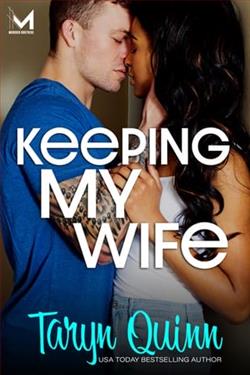Page 71 of An Irish Summer
I tried to laugh, but it got stuck in my throat. “I’d hold on to that endorsement until you see the plans,” I said. “Let’s make sure you’re pleased first.”
I was met with four pairs of expectant brown eyes, but I didn’t feel nervous. I had a good feeling about this one.
“So,” I continued, “I’m thinking champagne tea at the Kylemore Abbey. They do one on Thursdays, and I’ve secured a private tent for you in the garden.”
“That’s perfect,” one of the women said, clapping her hands together.
“That’s not all.” I was suddenly giddy to give them the rest of the pitch. “I’ve also arranged for a vintage dress fitting. People often dress up for the champagne tea at the abbey, so I have some rental dresses arranged for the four of you. Period pieces, that kind of thing.”
“Stop,” Fayola gasped. “You’re lying.”
“Cross my heart.” I smiled, and the women talked over one another sharing their excitement.
“And you just put this together this morning?” one asked, grabbing my forearm.
“Yeah, I mean, it was just a few calls, really, and—”
“Can I praise you now?” Fayola interrupted.
“Go to the event first,” I said. “Then we can talk.”
“And you’re sure it was no problem to get us in on such short notice?”
“Positive,” I said. “I have a connection.”
Fayola jumped off the couch and threw her arms around me, pulling away only to thank me profusely on behalf of the four of them.
Maybe Collin was right. Maybe I wasn’t giving myself enough credit, and I actually was better at making connections than I thought.
Chapter 16
All it took was one Instagram post from Fayola with a few hashtags about the Wanderer to gain immediate traction. A few other guests inquired about the dress rehearsals and tea at the abbey, and Eamon reached back out to arrange something more consistent.
“When will you just accept you’re doing wonders for the hostel?” Flo said one morning over coffee in town. “You can be good at a job without being attached to it, you know.”
I sipped my Americano and contemplated this idea. It seemed reasonable enough, except for the fact that this job happened to be three thousand miles from home, so if I was too good at it, I was bound to get attached eventually.
“That’s what happens though, isn’t it?” I said. “You get really good at a job, and then you get attached to the job, and then it just becomes your life?”
“You have it all wrong,tesoro,” she said. “Too concerned that life is what you do for work. Or where you do it.”
“And what is it if not those things?”
“It’s everything in between!” The family of the crying baby looked over as Flo rattled her espresso mug in the saucer. “It’s everything else you’ve done since you’ve been here. And morethan that, it’s everything you’vefelt. Your life isn’t making reservations and booking events and answering phones, Chelsea. It’s cliff jumping when you’re scared and dancing when you don’t know the steps and kissing men you think you shouldn’t and screaming at the top of your lungs at a hurling match and speeding down the Wild Atlantic Way. Open your eyes.”
Flo sank against the back of her chair like she was exhausted, muttering in Italian and signaling the barista for another espresso like we were at a cocktail bar. I was silent for a while, contemplating how I could possibly respond.
“I’m just saying you should consider letting go of these ideas about how you think life is supposed to go, that’s all,” she said after a minute, noticeably quieter than she’d been speaking before. “There’s not even a ‘supposed to’ at all, really. There is only what is.”
When I agreed to meet for a coffee, I didn’t think I was agreeing to meet forthis.
“You make it sound so easy,” I moaned.
“It is,” she said. “Once you surrender yourself to it, anyway. It’s a mind-set. Americans always think you need to work to earn pleasure, when really pleasure is the only point of being alive.”
“Have you always been so wise?”
“Ah, so you do see that it’s wisdom,” she said.















